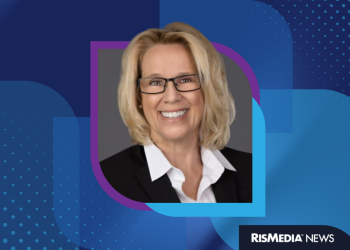Prior to the summer of 2024, home sellers were typically responsible for paying the commission for both their own agent and the buyer’s agent, and both sides of the transaction usually involved a traditional full-service agent. Agent commissions also remained (somewhat) consistent, generally hovering around 5% – 6% of a home’s sales price.
Following the settlement, many are still wondering what, if anything, has changed and to what extent these changes will affect these long-standing norms.
A recent study conducted by researchers Jefferson Duarte and David Zhang found that while commissions aren’t falling—something independently confirmed by RISMedia in its 2025 Contract & Commission study—more buyers are going without representation, and both buyers and sellers are now more likely to prefer experienced agents.
“The welfare effects of an increase in unrepresented buyers is ambiguous. One possibility regarding solo buyers is that they end up over-paying for properties, while another is that unrepresented buyers capture some of the commission savings from not having a buyer’s agent,” the researchers wrote.
More broadly, Duarte and Zhang explored four different possible direct effects of the 2024 NAR settlement: whether more buyers are choosing to forgo formal representation, whether buyers are increasingly selecting agents with greater experience, whether the average commission rate has actually shifted and if more households are turning toward fintech or discount brokerages as alternatives.
The increase in unrepresented buyers was not necessarily dramatic—about 1.7% across the country, and 1.9% in states that did not previously require buyer contracts. But it was directly correlated with the settlement, and persisted past the initial weeks post-settlement, the study found.
Simultaneously, agents with five years of experience or more saw a 2.1% increase in market share with sellers, and 1.2% with buyers. High-volume agents—those in the upper 75th percentile of closed transactions—saw a 3.5% increase in market share with sellers and a 2.2% increase for buyers.
While the researchers mostly did not seek to interpret these specific results, the data would appear to support what many in the industry have argued—that settlement changes have made consumers more aware of the value their agent brings. The small increase in unrepresented buyers also appears to show that some buyers have decided to go without agent representation, with the researchers noting that the disparity between states could indicate that the requirement to pay for an agent up front scared off some buyers.
What hasn’t changed
In terms of discount or alternative models, the researchers found no increased usage—also in line with RISMedia’s own survey. More than 90% of buyers still use representation, the researchers found, indicating that the majority remain engaged with traditional agent relationships.
In states like Connecticut, where buyer agreements have been required for a while, agents haven’t noticed many changes. “While my team has had more conversations around commissions recently, commissions were never fixed—and never will be—so very little has changed in how we serve our clients,” said Compass agent Jennifer Leahy.
When it comes to actual commission rates, the study suggests that not much has changed. The research finds limited rate changes following the policy through survey results and confirmed by administrative data using Compass’s revenue and transaction volume data, showing that the average implied commission rate from those agents is around 2.6%. Similarly, the research regarding the use of fintech and discount brokerages presented an increase so minimal that the results are considered practically flat compared to pre-settlement.
The researchers also pose the question of whether other factors are contributing to the shift to experienced agents—seasonality, or the sluggish market—potentially “confounding” their conclusions.
But they claim that based on the timing, with the shift toward experienced agents starting in September of 2024, it cannot be fully explained by other factors.
“In general, the increased market share of higher volume and more experienced agents is consistent (with) higher per-agent productivity and less inefficiency from free entry,” they wrote.











